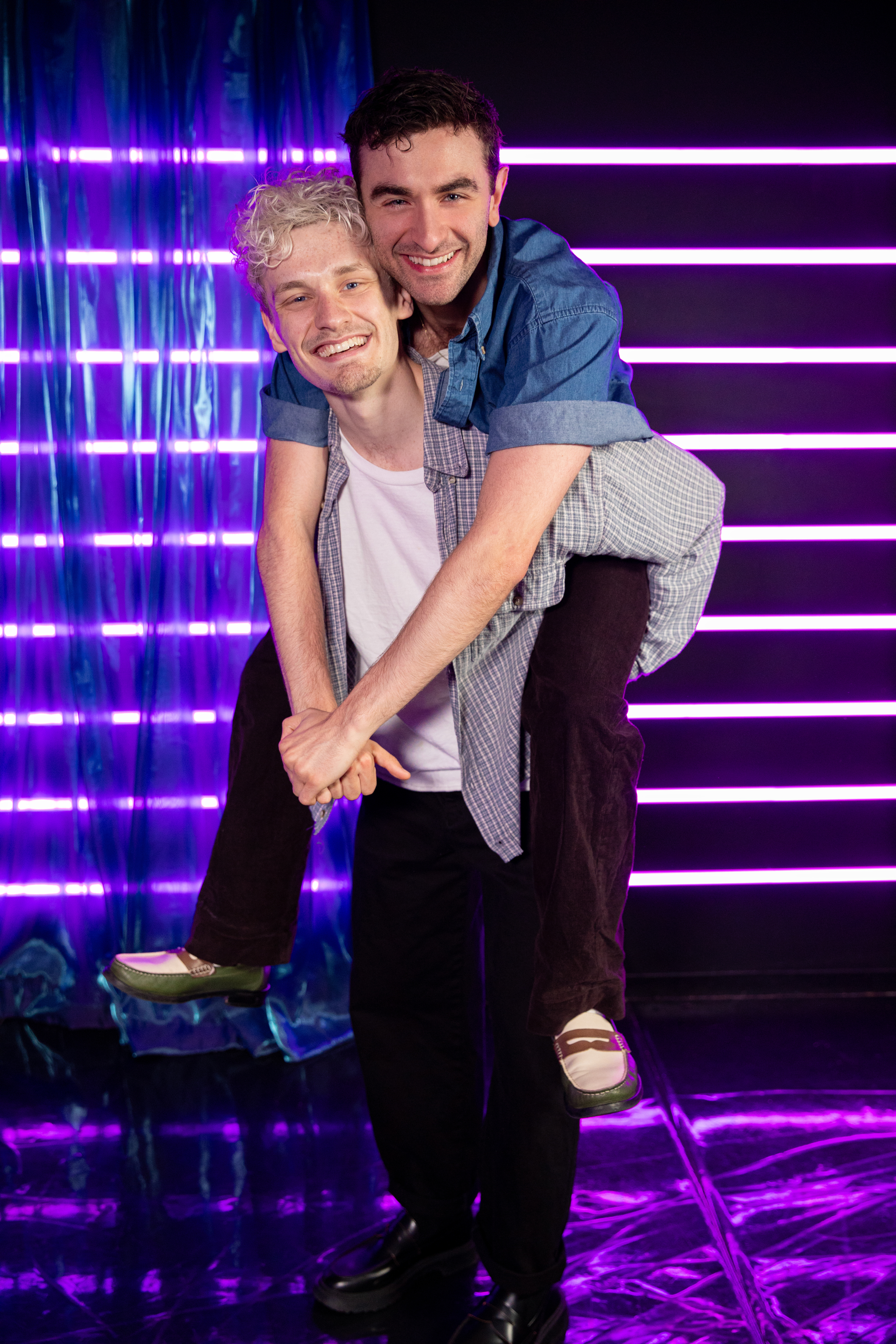Ricky Ubeda and Ben Cook on Their Electrifying Dance Partnership in Illinoise
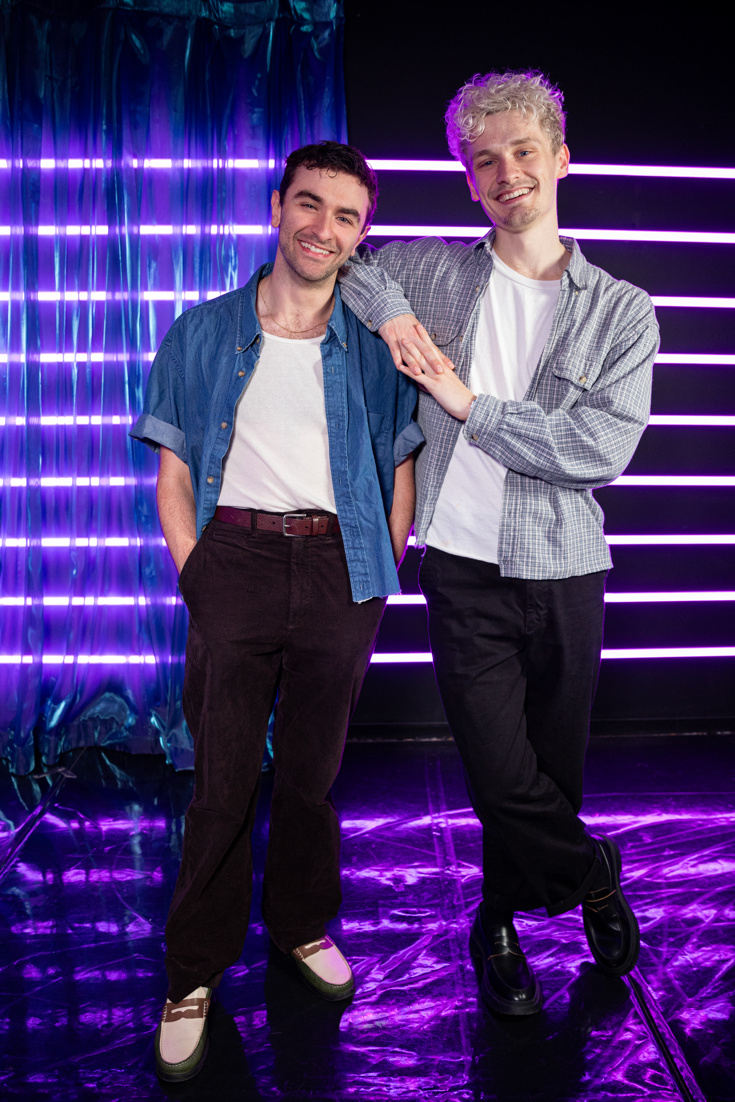
(Photo by Sergio Villarini for Broadway.com)
There’s a built-in audience for the new Broadway dance musical Illinoise among fans of Sufjan Stevens’ indie rock music and admirers of Justin Peck’s choreography for the New York City Ballet. But even if you enter the St. James Theatre knowing nothing about either of those things, the show grabs your heart in unexpected ways, thanks in large part to the performances of Ricky Ubeda and Ben Cook. These virtuoso young dancers tell a story of friendship, love and loss without uttering a word, guided by Peck’s thrilling choreography and Jackie Sibblies Drury’s story outline, which explains, “Henry [Ubeda] and Carl [Cook] arrive in New York, exhilarated, ready to begin the rest of their lives. Together. But the city sometimes has a way of dividing people.”
Ubeda and Cook shared a stage in the pandemic-shortened Broadway revival of West Side Story, and they’ve been stars in the dance world even longer: At 18, Ubeda won the TV competition So You Think You Can Dance; Cook’s six Broadway shows include a stint in Billy Elliot at age 14. In a joint interview, they showered each other with compliments and marveled at the gift of performing a full-length dance show on Broadway.
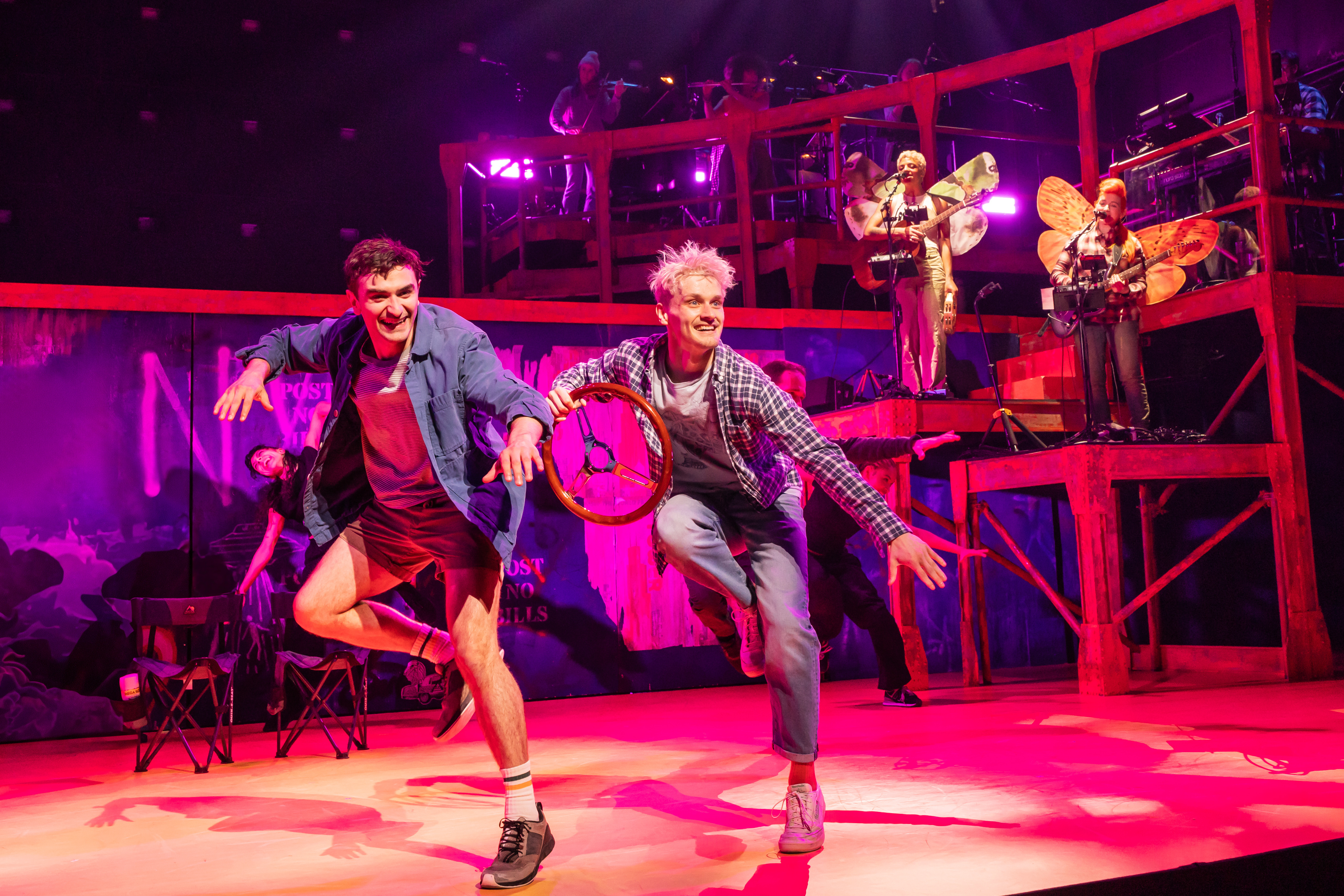
Congratulations on Illinoise’s Best Musical nomination! Both of you are Broadway veterans, but this show must feel very different.
Ben Cook: It’s already my favorite thing I’ve ever done because of the intimacy it was created with. Everyone who is a collaborator on this project had some sort of prior relationship with one another or with Justin [Peck], so it was a very safe, warm creative environment.
Ricky Ubeda: It’s different in the sense that we were with it from the first workshop and played an integral part in creating the language we use to communicate in the show. As an artist, it’s exciting to be part of something that feels new.
Without revealing spoilers, Illinoise includes a sensitive storyline about the relationship between your characters and a childhood friend played by Gaby Diaz, then shifts to New York, where Ahmad Simmons enters the picture. What’s it like to tell this story entirely through dance?
Ricky: I’ve swung out and watched the show, and I always say it speaks louder than anything that could be said through words. The characters are relatable and the situations are universal: Tons of people have been in love and have had to grieve and heal through something. Also, for me, to get to play an unapologetically, openly queer person and grapple with what it means to come of age and find a chosen family is a big healing moment for my inner child.
Ben: There’s such a rich emotional history that we all share: Gaby is my girlfriend in real life—we live together—and Ricky, Ahmad and I have worked together many times. All of that plays a role in our ability to connect with one another and share that with an audience.
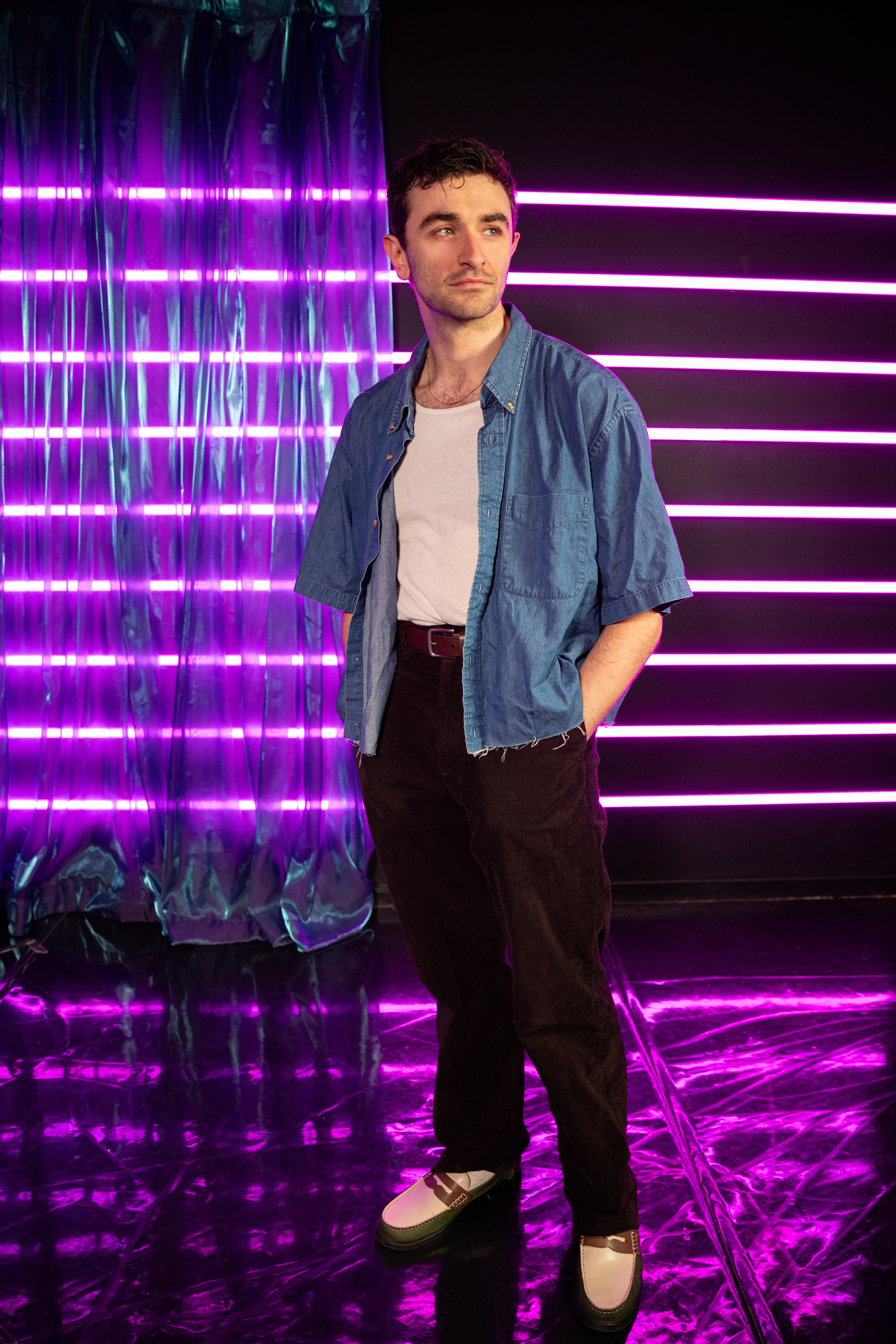
(Photo by Sergio Villarini for Broadway.com)
Why does the show work as a piece of musical theater?
Ben: Justin comes from the ballet world, so his movement is rooted in a technical form, but it’s been crazy to see how his work has evolved, especially since he started working with people like Ricky and Gaby, who can do unbelievable things with their bodies. At the [Park Avenue] Armory [where the show had a pre-Broadway run], everything felt so expansive, and now I love the experience of doing it in a more intimate theater.
Ricky: It’s not a traditional Broadway musical, but there’s music, there’s dancing and there’s storytelling, and that is what constitutes a musical for me. It’s genre-bending in a way, but at its core, it’s a story you watch that’s using its tools differently.
Were you a fan of Sufjan Stevens’ music? How does it lend itself to choreography?
Ricky: Sufjan was always in my sphere because it’s music we put on to improv in the contemporary dance world. I grew up in a Cuban household, so my parents weren’t listening to it and I had no gateway into it until my teen years. Now my relationship with the music is wrapped around the narrative of the show, which is cool.
Ben: I had listened to Sufjan’s music from the movie Call Me By Your Name and, as Ricky says, my relationship with it now is tied to the story of the show. His music is so orchestral, so theatrical: It bounces back and forth between being epic and cinematic in scale to being very intimate. I think it speaks to his unbelievable range.
Meanwhile, three amazing singers [Elijah Lyons, Shara Nova and Tasha Viets-VanLear] are standing above you, plus an orchestra. What’s that like?
Ricky: There’s this interesting “meta” quality to the show where the singers and the dancers are in different layers of the same world. We don’t interact physically, but it’s almost like the universe is singing at us and pulling the strings in telling the story. We have this energetic exchange, which is really interesting as an actor. I could talk for hours about how they’re revelatory vocalists, and the same is true of the band. We truly have some of the greats at what they do in the building every day, which is super humbling.
Ben: Part of the challenge was figuring out how to make the music and the dance all-encompassing. Our show isn’t reliant on flashy sets; it’s completely dependent on the band, the singers and the dancers, and I feel like our exchanges have gotten much more fleshed out in the past six months.
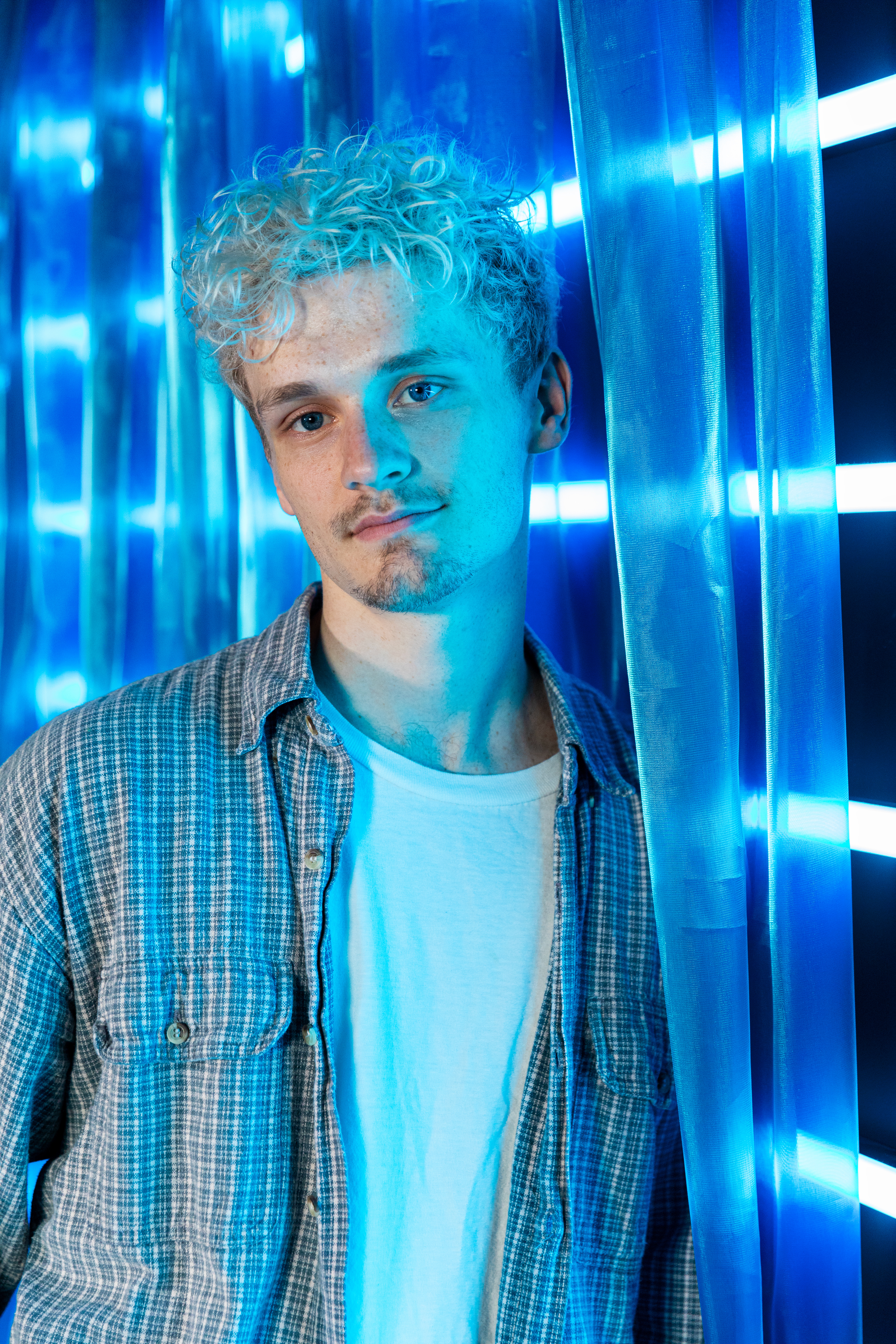
(Photo by Sergio Villarini for Broadway.com)
I’m going to put you two on the spot by asking what’s special about the dance ability of the other person.
Ricky: Let me go first!
Ben: No, no, no! Even prior coming to New York, Ricky was on a level where I never, ever thought we would be dancing in the same sphere, let alone right next to each other. His ability is unmatched, and then you layer in what he offers as a creative person within a working environment, and you almost can’t believe it exists in one individual. I’ve seen the show from backstage a hundred times, and he still surprises and amazes me in his ability to shape his body to the circumstances of our story.
Ricky: Ben is a brilliant dancer, but he’s also an insanely gifted actor who cuts through to the heart of what is happening. His dancing feels so human and so close—it’s like watching a human being who just happens to have all this gorgeous dance training. Being in the room with him for two years has pushed me to look beyond the technical elements of “How do I wow people?” and back to “How would this character move?” I’ve learned so much from him.
Both of you were working professionally in your teens. How do you feel about that now?
Ricky: It was hard. It was good in the career sense, because I got on-the-job training from the older people I worked with, but at the same time, it was tough. I had a lease of my own in New York at 19 and I didn’t have a lot of help from my parents, so it made me grow up very quickly. I wouldn’t do anything differently, but it did teach me a lot, both good and bad. In a way, this show allows us to honor our younger selves by playing people who are coming of age, which feels good.
Ben: I knew when I was very, very young that this was what I wanted to do. [Cook debuted on Broadway at 11 as the Little Boy in the 2009 revival of Ragtime.] I was fortunate to have supportive parents and teachers who believed in me, but it was never their idea. I knew that school was not for me; even from age 10, my attitude was, “Get me in there, and I will do the work and deliver.” Looking back, I feel like the opportunities came less because of my talent and more from my desire and persistence. I still love being thrown into the deep end, as scary as it is.
One of you won a TV reality dance competition and the other played Billy Elliot—you must be fearless by now!
Ricky: Maybe we’re just a little bit crazy. The fear is always there; you just make friends with it. You think, “We’ve got to jump in if we’re going to make any progress. We’ve got to move.” You use the fear.
Ben: It never goes away.
If you could write your career ticket for the next 10 years, what kinds of things would you like to do?
Ricky: I don’t want to tear up, but I feel like I have everything I’ve ever wanted right now. I just want to continue to make cool theater with my friends, and to be healthy. I’m leaning to choreography as well, so maybe dabbling in that over the next 10 years, but working in a collaborative, open, trusting creative environment has always been the dream.
Ben: Exactly that! This experience is going to spoil us for any work we do in the future. The standard has been set, and if it’s a different version of this for the next 10 years, we’ll be lucky.
